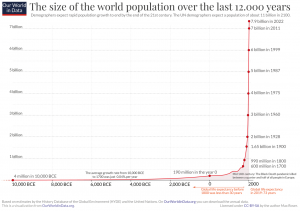By Lee Van Ham
As anxiety and fear intensify around the breakdowns in nature and societies, conversations increase. People wonder: How do we hold civilization together? What fixes work? How can we pay for the massive fixes necessary? What if we’ve passed the tipping point and civilization does collapse? What then? Talking about these questions is more and more necessary, but solutions that truly fit the planet are elusive. How do we proceed?
All solutions to date need multiple planets to sustain them. Conversations are long on problems and short on workable solutions. Topics may be immigration, family size, women’s right to control their bodies and functions, food and scarce water for more people, standard of living, education and empowerment of women, patriarchy, and others. All of these topics have so far left us in polarized societies.
How, then, can we have conversations leading to constructive, transformative, one-planet ends? Here are four practices that can help us.
Talk from our Spiritual Center—The most helpful conversations will happen when we can speak from our deeper selves, not the conversations we try to control by speaking from our ego identity. The ego will seek to persuade with reason and facts, science and history—all of which are good but not particularly effective as transforming change-makers. The deeper self speaks from curiosity about nature—especially the mysteries just out of reach of reason and beyond facts. Science, though able to reduce many mysteries to our understanding, never exhausts nature’s wonders. There is a sense of awe and reverence around Earth’s processes. These can take our conversations to possibilities that our egos never entertain.
When our ego is not in control, a deeper and greater spirit is. It is this Spiritual Center along with ego’s reason and science that are able to stir our imaginations into possibilities we need to pursue … urgently.
Talk Clearly about Our Relationship with Nature—All of our population conversations, consciously or not, assume a certain relationship to Earth. In essence, am I inside the processes of nature and working with her as ally, or am I outside of these processes managing them?
This core question may have many variants, and answers may have nuances, all of which need to be articulated. The population issues will move to different solutions depending on how we understand our relationship with nature. I have little hope for any fruitful conversations unless we agree to speak from inside of nature’s processes, as part of those processes.
Be Clear that We Need Alternatives to Growth Economics—The dominant voices of global societies assume that growing economies are stronger and better than contracting or stagnant ones. Take capitalism as an example. As long as capitalism insists that it must grow in order to be strong, it eliminates itself from contention for one-planet solutions to population. If an economy is to work for all humans, and the measure is growth, then the conclusion cannot avoid requiring multiple planets.
Also, growth economies typically create societies with economic hierarchies in which great wealth concentrates at the top and leaves the majority with less, many with far less. Unstable societies result. Conflict is endless and dooming.
Economies must now copy the processes of nature’s economy, an economy in which exchanges or trade and cooperation dominate. Nature’s remarkable interconnection and interdependence evolve an abundance for all in a diversity so great that humans have not yet even named all the species, let alone describe our partnership with them. Because current dominant economies show few signs of yielding to nature’s wisdom, collapse of MultiEarth economies appears to be the most likely way that the transforming change we need in economics can happen.
Emphasize Our Inherent Capacity to Limit Our Consumption—Based on the 12,000-year civilization story, there is little reason to disagree with those who believe that greed ultimately wins—that “More” is a more powerful energy in us than “Enough.” But the truth is that our species is hard-wired for sharing, cooperation, and interdependence. It is the way our species lived for millennia prior to 10,000BCE. Many pockets still live that way today. The life sciences now understand that cooperation is a stronger power in the evolutionary story than competition, though both are involved. The domination of ego civilization with its emphasis on competition represents a wrong turn in our history. Jewish mythology represents it as a departure from Eden.
Emphasizing our inherent capacity to limit consumption means resisting the monster of the advertising industry which insists on calling out our baser instincts for more things, more travel, more debt—all delivered conveniently and at the best prices. The ad industry wants more humans, not less, because more means more markets and more profits—all values that OneEarth living rejects.
*****
There is no way through to human population solutions in the MultiEarth worldview. A new path of soul-centered, Earth-centered living is necessary. Since rulers and powers have been unwilling to choose it, collapse will give an opportunity to walk the OneEarth path. Humans living from the soul-center and Earth-center invariably become tenders of creation’s interdependence, including how Homo sapiens find our real purpose in that interdependence.
Image credit (CC-BY): Max Roser, Hannah Ritchie, Esteban Ortiz-Ospina and Lucas Rodés-Guirao (2013) – “World Population Growth”. Published online at OurWorldInData.org. Retrieved from: ‘https://ourworldindata.org/world-population-growth‘ [Online Resource]






